Search
Did you mean: Islam?
Summary 
Loading AI-generated summary based on World History Encyclopedia articles ...
Search Results
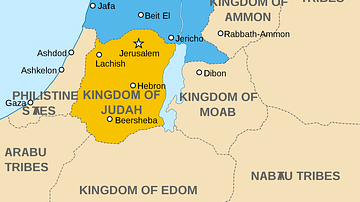
Article
Mesopotamian Effects on Israel During the Iron Age
The Iron Age in the traditional Ancient Near Eastern chronology ranges from somewhere around 1200 BCE to 333 BCE. It begins from the era when it was first thought iron came to be used up to the ascendency of Alexander the Great as the major...

Definition
Kingdom of Israel
The Kingdom of Israel occupied that part of the land on the Mediterranean Sea known as the Levant which corresponds roughly to the State of Israel of modern times. The region was known, historically, as part of Canaan, as Phoenicia, as Palestine...
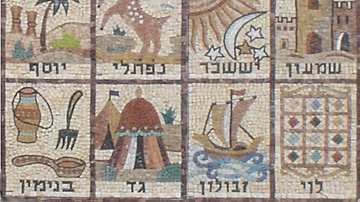
Article
The Twelve Tribes of Israel
The Twelve Tribes of Israel refer to the sons of the Jewish Patriarch Jacob and are important for the tribal lineages of those who constituted the nation of Israel. In the ancient world, all ethnic groups developed stories of their ancestors...
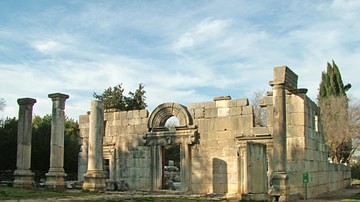
Article
The Ancient Synagogue in Israel & the Diaspora
A unique and fundamental aspect of ancient Judean society in both Israel and the Diaspora, the ancient synagogue represents an inclusive, localized form of worship that did not crystallize until the destruction of the Temple in 70 CE. In...
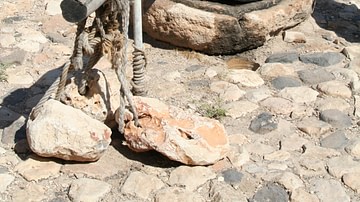
Definition
Ancient Israelite Technology
Technology enabled ancient Israel, the Northern Kingdom excluding Judah, to be economically prosperous and establish itself as a major political power as early as the 10th century BCE, steadily growing until its destruction in 720 BCE. Some...
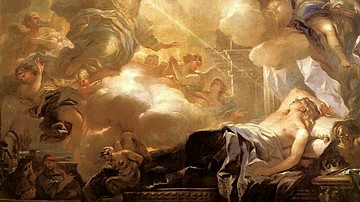
Definition
Solomon
According to biblical tradition (and some say myth), King Solomon was the third and last king in the ancient United Kingdom of Israel. Other faiths, such as Islam and Rastafarianism, also embrace the notion of Solomon as a sagacious king...
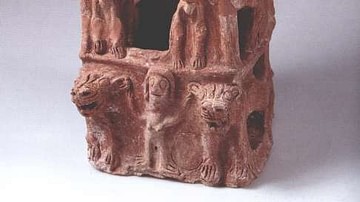
Definition
Ancient Israelite Art
Ancient Israelite art traditions are evident especially on stamps seals, ivories from Samaria, and carvings, each with motifs connecting it to more general artistic traditions throughout the Levant. Ancient Israel, and therefore its art...
![Moabite Stone [Mesha Stele]](https://www.worldhistory.org/img/c/p/360x202/10037.jpg?v=1728952806)
Definition
Moabite Stone [Mesha Stele]
The Moabite Stone, otherwise known as the Mesha Stele, contains an ancient inscription by Mesha, King of Moab during the late 9th century BCE, elements of which match events in the Hebrew Bible. The inscription describes two aspects of how...
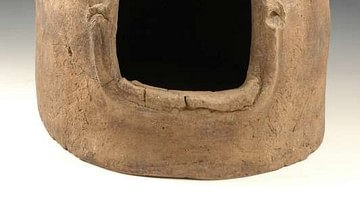
Image
Model Shrine, Israel
This object is a pottery model shrine. It was excavated from Rehov and dates to the Iron Age II (9th Century BCE). It has a height of 40 cm (14.7 in) and a width of 30 cm (11.8 in). (The Israel Museum, Jerusalem) The Israel Museum, Jerusalem...

Image
Sartre and Beauvoir in Israel
Jean-Paul Sartre and Simone de Beauvoir arriving in Israel, photo by Milner Moshe, 1967.
Government Press Office, Israel.